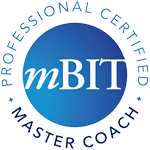
- My child isn’t talking as much as other children their age, should I be worried?
Every child develops at their own pace, and are at their own stage of development for a variety of reasons. There are so many apps out there to ‘track’ progress. Don’t get me wrong, they can be great of course, but also anxiety inducing, especially if your child isn’t where the app says they should be!
There are, however, general speech, language and communication milestones that we look for. If your child isn’t meeting these milestones, it doesn’t necessarily mean that there is something wrong. We often find that making small changes in the way we communicate with our children can make a big difference to their development. For example, we naturally ask children lots of questions but changing these to comments can be really effective for language development e.g. instead of ‘what is that?’ we can say ‘wow, it’s a tall giraffe.’ Early assessment can help you understand what is going on and how you can help.
- Will they grow out of it – do I need to do anything now or shall we wait and see?
Early support can be the most effective. There are lots of tools and strategies that we can give you to try at home. Sometimes, this is enough. If your child is older, don’t panic. It is never too late to start supporting your child with their language and communication skills.
- Is it my fault?
Parents often ask me this – are they not talking to their child enough, did they do something wrong? Absolutely not. Speech and language delays happen for a number of reasons – hearing issues, genetics or just individual differences in development. Sometimes there is no apparent explanation! You’re already doing the right thing by exploring this topic. The focus is always on what we can do now, and how we can promote a positive communication environment for your child.
- What does therapy look like?
A lot of the time it looks like play! This is how children learn language best. Even when we are working on speech sounds, we aim for a play based interest-led approach. If your child is into dinosaurs then that’s what we use, we want to engage and motivate them, not put them off! I find that many kids benefit from having a choice of activities and the way we do things. The session is theirs after all! Confidence underpins everything in my opinion. When we promote this and help it blossom, we see progress.


